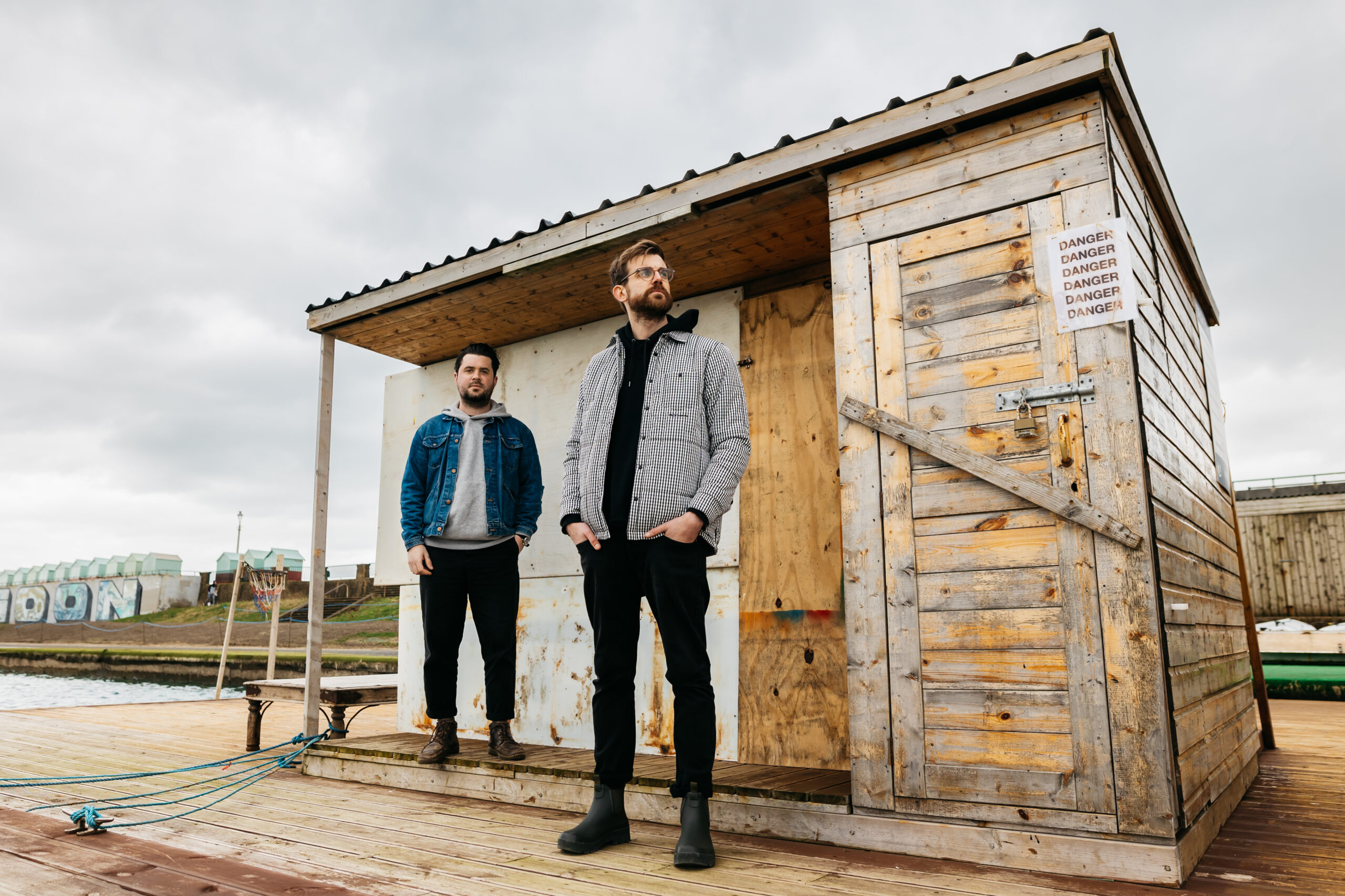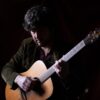Ahead of the release of their fourth album A Life Diagrammatic we put some questions to the duo JOHN. Including just how did a collaboration with Simon Pegg come to be.
What are the main themes on A Life Diagrammatic?
We tend to write in a pretty close-to-hand fashion. I never have any interest in writing bold direct statements – which often seems to be a pretty popular approach these days. I just don’t find it interesting or effective. I think it’s important to let things filter through you and as ever it’s an album that attempts to catch thoughts and experiences from our everyday, this inadvertently captures glimpses of the social and political – after all, everything we do ties into a structure which is connected to these these subjects. There’s a lot of thought about this very structure, whether that be the process of historicism that our future is defined on, or the struggle to feel present amongst its tireless collateral.
I particularly enjoyed ‘Construction Site/Summer_22′. What is it that fascinates you about urban life? Does this track relate to a specific construction site? It switches to a less distorted vocal midtrack and then reverts back, almost like to stop start of construction work. And I loved the outro which is reminiscent of drilling!
Thanks a lot for digging deep into it – depth is certainly something that we’re lacking with the acceleration of the present day. I think it’s an artist’s responsibility/role to scan their experience of the present, rearranging these impulses into forms that help us question routines – that often become snowed-over by the repetition.
I think ‘Construction Site’ offers a multiplicity of meaning, in the sense that it could be a physical construction site of a new building, or the construction site of ‘history’ that is something that is constantly building each day. This process is obviously at the mercy of those in power, information saved and information lost depending on this power’s prerogative. The second section referred to as ‘Summer_22’ is more literal, actually built from four recording of the walls on my bedroom that sat in the middle of a demolition site in the Summer of 2022. I felt it offered another direction to the album, bringing in some more cinematic feel to the running order.
I have to ask, how did the contribution from Simon Pegg come about on ‘Media Res‘? And is that a staged piece of audio or is it something that already existed?
This was a monologue that I wrote especially for the album – with Simon in mind – it was scripted with all the hesitations included. Simon has been a big fan since the early days, and after a personal few exchanges over the last ten years, I felt like he would be the perfect person to deliver the script. The script deliberately falls down on itself in a Brecht-ian fashion, so it made sense to have a semi-familiar voice deny itself. Thankfully Simon was so forthcoming to be a part of the project, even in the busy period before Mission Impossible was released (a slightly different type of budget).
What do you think are the main differences on this album compared to the first 3?
I think we’ve gradually built our cinematic tendencies throughout the history of the band, and it’s great to see people enjoy the growth and expansion throughout the releases. There’s still a more direct charm of our debut God Speed In The National Limit and it’s great to see people still interested in it, despite having evolved as a band throughout the last decade. There’s certainly technical differences having changed production team of this one (Tom Hill – Recording, Seth Manchester – Mixing, Frank Arkwright – Mastering) and having introduced new sounds thanks to different instrumentation. For example the use of crushed drum samples intercut with an acoustic drum kit.
The album finishes with ‘The Common Cold‘, a ferocious track with a static fuelled electricity about it. Could you share a little of the background around this song?
As mentioned above, I had playfully produced a series of crushed drum samples that some what organically ended up helping us to write some of the new songs. This offered the ‘static-fuelled’ industrial feel that the song developed. It’s a track that channelled my concerns for the lack of depth in the present. It’s worrying when art and music starts trying to second guess the attention-culture we operate in before the art is even produced. You can see it in the way that writers include pop-cultural references in songs in order to forge faux-relatability / brand awareness. It’s a capital-driven tactic.
What are you most looking forward to on this tour? Do you any tips for managing being on tour for so long?
We’re old heads at this and know full well that you need personal time and space in between shows – in order to deliver the very best performance every night. Johnny and I have gradually become more and more emotionally open with each other, which I think is a really important element of lasting as a band. We’ve seen young acts thrust into the spotlight with much more investment placed behind their backsides – and it’s like watching a car crash. I’m pleased that we’ve been able to develop and grow at a steady rate to prepare us for the demands of an energetic headline show. As a self-managing band we know the cogs behind the scenes and just enjoy meeting the teams who put on these events – we just get stuck in.
We’re really looking forward to dipping our toes into the States and Canada. It’s a massive investment but similarly, I think it’s been sensible to bide our time to work on what should be a special debut headline tour – instead of jumping at showcase opportunities that have no guarantees whatsoever. We’re really looking forward to yet another UK tour too, I have to pinch myself to think that I’ll have headlined somewhere as special as The Brudenell Social Club in Leeds three times. Similarly we’ve got some of our biggest shows including Scala, London and Concorde II in Brighton, so we hope you can make it.
A Life Diagrammatic is released on 22 September.
For more information on JOHN, including full tour details, please check their facebook and website.




